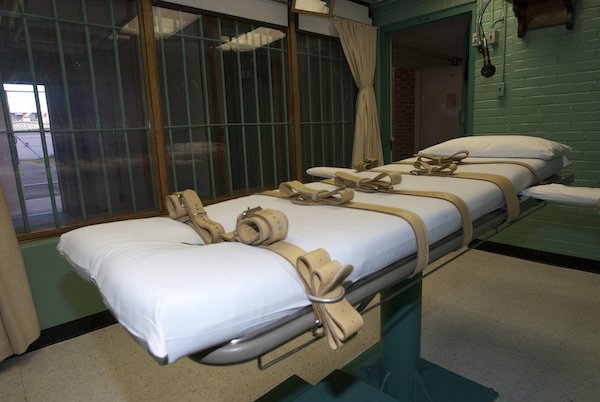
WASHINGTON — Idaho Republican Gov. Brad Little signed legislation March 24 allowing death row inmates to be executed by firing squad if the state cannot obtain drugs needed for lethal injections amid a nationwide shortage of those drugs imposed by the manufacturers.
The governor’s signature on the legislation passed by state lawmakers March 20 makes Idaho the fifth state in the nation to allow firing squad executions, joining South Carolina, Mississippi, Oklahoma, and Utah. South Carolina’s firing squad law is currently on hold pending the outcome of a legal challenge.
A statement issued by the Diocese of Boise, Idaho, on the day the measure passed the state legislature by a veto-proof majority, did not specifically address the state’s approval of firing squads but instead spoke against the death penalty in general.
“The death penalty has not proven to be a deterrent against crime,” the statement said, adding that the punishment “discriminates against the poor and minorities who usually cannot afford effective counsel; sometimes results in the execution of innocent people; and, most importantly, it deprives the guilty of whatever time God allows them for personal redemption.”
The diocese also noted that the Catholic Church “advocates for more restorative responses to harm that prioritize healing, accountability, and upholding the human dignity of all individuals, no matter the harm they may have caused or suffered.”
Catholic Mobilizing Network, a national Catholic organization working to end the death penalty and promote restorative justice, said on its website that the bill was prompted by the state’s “ongoing efforts to execute Gerald Pizzuto, Jr. — a man who is dying from terminal bladder cancer.”
The state has set three execution dates for Pizzuto but all of them have already passed without his execution due to the state’s inability to acquire the necessary drugs for a lethal injection. Pizzuto, who has been in hospice care since 2019, was sentenced to death for the murders of two gold prospectors in 1985.
Idaho is one of several states that has struggled to obtain lethal injection drugs, as pharmaceutical companies have been refusing to sell their products to correctional facilities for the purpose of executions.
“There is no humane way to execute a human being. Debates to determine if death by firing squad is ‘less painful’ are futile,” Catholic Mobilizing Network said. It added that executions of any kind “are beneath the dignity of the state of Idaho.”
The group also quoted Idaho State Sen. Dan Foreman, a Republican, who said the burden of trauma that will be placed on all who participate in a firing squad execution is undeniable.
“I’ve seen the aftermath of shootings, and it’s psychologically damaging to anybody who witnesses it,” Foreman said.
According to the Death Penalty Information Center, three people have been executed by firing squad since executions resumed in the U.S. in 1977. All three firing squad executions took place in Utah and the most recent one was in 2010.
“It is important to point out that fulfilling justice can and must be done by minimizing stress on corrections personnel,” Little wrote after signing the bill. “For the people on death row, a jury convicted them of their crimes, and they were lawfully sentenced to death. It is the responsibility of the state of Idaho to follow the law and ensure that lawful criminal sentences are carried out.”
Idaho State Sen. Doug Ricks, a Republican who co-sponsored the bill, told senators March 20 that the state’s difficulty in obtaining lethal injection drugs could continue indefinitely and that the bill will help ensure the rule of law is carried out.
In recent years, particularly as cases of botched lethal injections have occurred, some prisoners have said they would prefer a quicker execution from a firing squad, which some lawmakers have argued is more humane for that very reason. But most Americans, according to a 2014 Gallup poll, viewed this method as the least humane form of execution.
